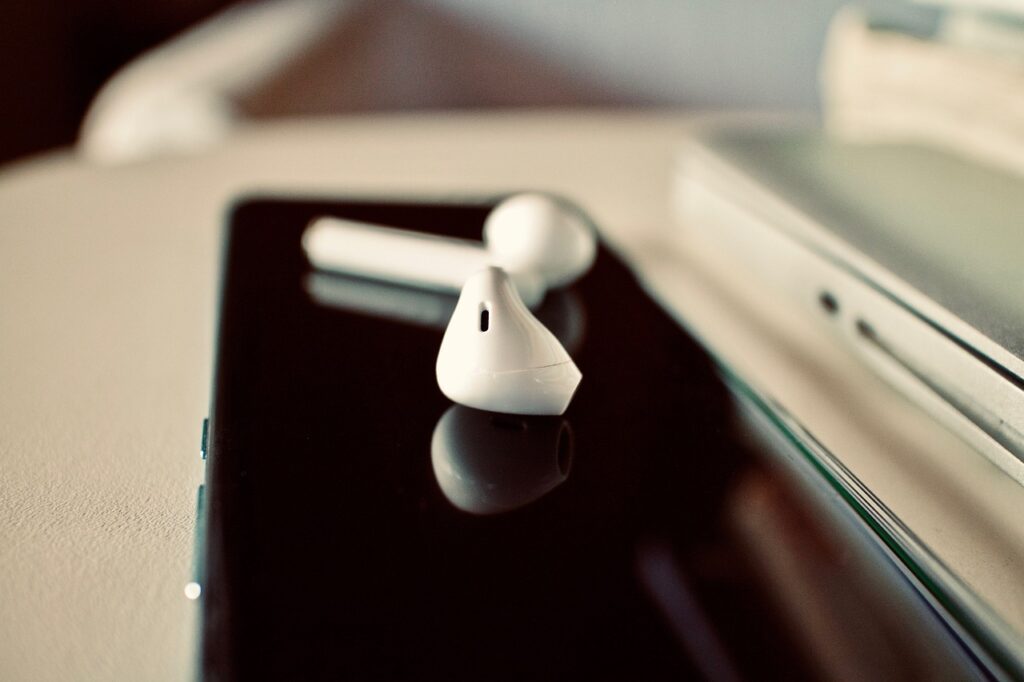
Finding the best headphones for your ears can be a challenge, especially when you are on a budget. But don’t worry, this blog post will help you decipher the jargon and guide you to finding the best budget earbuds. By understanding the terminology used to describe headphone and earbud features, you can make an informed decision that best suits your needs and budget. So, let’s get started and explore the ABCs of headphone and earbud jargon!
The Importance of Understanding Headphone and Earbud Jargon
Understanding headphone and earbud jargon is crucial when it comes to finding the best budget earbuds for your needs. By familiarising yourself with terms like drivers, frequency response, impedance, noise cancelling, and more, you’ll be able to make a more informed decision.
Whether you’re looking for the best running headphones, the best gym headphones, the best wired headphones, or the best budget wireless earbuds, understanding the jargon will help you narrow down your options and find the perfect fit for your budget and preferences. So, let’s dive in and demystify the world of headphone and earbud terminology!
Types of Earbuds and Headphones
When it comes to finding the perfect pair of headphones or earbuds, there are several options to choose from. You have the best budget headphones, the best over-ear headphones, the best earbuds for running, and even the best cheap wireless earbuds.
The key is to understand the different types available and their unique features. Whether you prefer the compact and portable nature of earbuds or the immersive sound quality of over-ear headphones, knowing the options will help you make an informed decision. So, let’s dive into the world of earbuds and headphones and explore the different types available to find the perfect fit for you.
Drivers: What Are They and Why Do They Matter?
Drivers are the small speakers inside headphones and earbuds that convert electrical signals into sound. They are responsible for producing the audio you hear. The quality of the drivers directly affects the sound quality of your headphones or earbuds.
For the best over-ear headphones, you’ll want to look for larger drivers, as they can deliver more powerful and accurate sound. Understanding the importance of drivers will help you make a more informed decision and find the perfect pair of headphones or earbuds for your needs.

Frequency Response: How to Choose Based on Your Music Preferences
When it comes to choosing headphones or earbuds, the frequency response is an important factor to consider, especially if you’re a music enthusiast. The frequency response refers to the range of frequencies that the headphones or earbuds can reproduce.
For example, if you listen to a lot of bass-heavy music, you’ll want to look for headphones with a lower frequency response, as they can deliver those deep, rumbling bass notes. On the other hand, if you enjoy classical music or vocals, headphones with a higher frequency response will ensure the clarity and detail of the sound.
Understanding your music preferences will help you make an informed decision and find the best over-ear headphones that match your musical taste. So, take some time to consider the genres you listen to the most and choose headphones with a frequency response that suits your preferences.
Impedance: Does It Affect Sound Quality?
Impedance is an important factor to consider when choosing headphones or earbuds, as it can affect the sound quality. In simple terms, impedance refers to the electrical resistance that the drivers of your headphones or earbuds have.
A higher impedance means that the drivers require more power to produce sound, which can result in a clearer and more accurate audio reproduction. However, it’s important to note that not all headphones with higher impedance will automatically provide better sound quality. The best over-ear headphones will have a balanced impedance that matches well with your audio source, ensuring optimal sound performance.
Noise Cancelling vs. Noise Isolating: Which Is Better for You?
When it comes to choosing the best over-ear headphones, one important consideration is whether to go for noise cancelling or noise isolating. Noise cancelling headphones use technology to actively cancel out external noise, creating a more immersive listening experience. On the other hand, noise isolating headphones physically block out noise by creating a seal around your ears.
The choice between the two depends on your personal preferences and needs. If you frequently travel or work in noisy environments, noise cancelling headphones might be the better option. However, if you prioritise audio quality and don’t mind a slight decrease in noise reduction, noise isolating headphones can provide excellent sound isolation. Ultimately, it’s about finding the right balance between noise reduction and audio quality for you.

Wired vs. Wireless: Pros and Cons
One of the decisions you’ll have to make when choosing the best over-ear headphones is whether to go for wired or wireless. Wired headphones offer a reliable connection and often provide better sound quality. They also don’t require charging, which can be a plus if you forget to charge your devices.
On the other hand, wireless headphones offer more freedom of movement and convenience, allowing you to listen to music without being tethered to your device. They are great for activities like working out or commuting. However, keep in mind that wireless headphones may have a slight decrease in sound quality compared to their wired counterparts. Ultimately, the choice between wired and wireless headphones depends on your preferences and needs.
Fit and Comfort: Finding the Right Size and Style
Finding the right size and style of headphones is essential for both fit and comfort. The best over-ear headphones come in various sizes and designs to accommodate different head shapes and personal preferences. Some may prefer a snug fit that completely covers the ears, whilst others may opt for a looser fit that allows for more airflow. It’s important to try out different sizes and styles to find what feels most comfortable for you, ensuring that you can enjoy your music or podcasts without any discomfort or irritation. Remember, comfort is key when it comes to long listening sessions!
Durability: Materials and Build Quality
When it comes to choosing the best over-ear headphones, durability is a crucial factor to consider. You want a pair of headphones that will last, so it’s important to pay attention to the materials and build quality. Look for headphones that are made with sturdy materials like metal or high-quality plastics. Pay attention to the construction of the headband and ear cups, making sure they feel solid and well-constructed. Additionally, check for features like detachable cables, as they can extend the lifespan of your headphones. Investing in headphones with excellent durability will ensure that you can enjoy your music for years to come.

